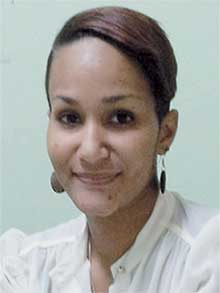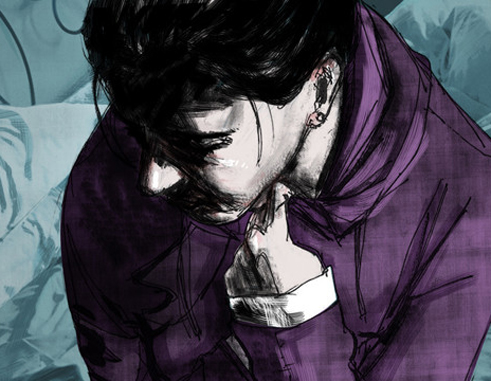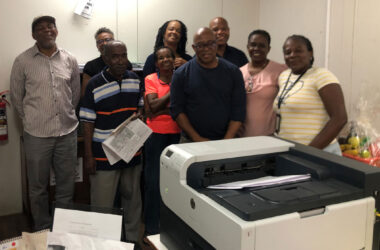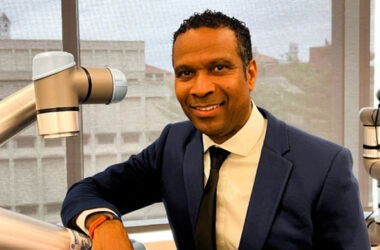
SURVIVORS of sexual violence struggle with a range of emotions that often result in self-blame and guilt. They blame themselves for what they believe they caused, what they believed they could have prevented or stopped. There is an extreme guilt that survivors carry around with them, a guilt that is made more difficult by the way in which their sexual assault is received and treated by society.
Guilt, self-blame, anger, fear, loneliness — these are intense emotions survivors grapple with on a daily basis. They fear how they will be treated should they decide to say “Me Too”; that fear causes anger and loneliness.
Anger because of what was done to them, because they are being blamed for being violated, because when they need support but instead are faced with questions and accusations about how they could have prevented someone else’s decision to violate them.
The loneliness comes when they are alone, when they share their story but feel like those sitting and listening don’t understand; that they somehow blame the survivor for an action that they could not have known was coming, for an action that they did not want.
Survivors feel the blame and hear the accusations in the questions that are being asked. These emotions are only a few of what survivors deal with on a daily basis. These emotions are long-lasting, leaving survivors wondering what next, who do I turn to for help, who understands what I am going through, was this truly somehow my fault.
The damage that occurs when one has been sexually violated doesn’t only happen in that moment; the emotions that continue to course through leave them constantly questioning their lives, themselves and their futures.
The guilt feels like a never-ending cycle of pain. Survivors feel guilty over being violated, over sharing or not sharing their stories, over being intimate or not being intimate. They feel guilty over coping, over how they choose to cope, over wanting to regain control over their lives in the ways in which they choose to. They wonder what will happen, how they will be treated when people find out. They feel guilty for setting boundaries, for speaking out, for how those in their immediate family/friends are affected.
As survivors of sexual assault, guilt and shame follow you around for as long as you let it. It takes time to understand that you have nothing to feel guilty for, that you should be putting yourselves first, that you should be setting the boundaries you need to ensure that your journey to healing is filled only with support and care. As survivors, guilt is one of the hardest but most important feelings to shed. Know that you are not guilty of any crime, that you were victimized and that anyone blaming you is not healthy for your journey to healing.
Your abuser/s made you feel guilty, he/she made you feel culpable in the act of sexual assault. Many of us wrestle with deciding how much of the blame should be placed on our shoulders. I can tell you that none of the blame is yours to bear. As a society, we need to understand that victims and survivors of sexual assault should not be re-victimized by our ignorant remarks, questions about their clothing, their intoxication level, their behaviour, etc. as this had nothing to do with the violent act that was committed against you.
As a society, we have to stop being so willing to give an abuser the benefit of the doubt at the expense of the survivor. We question when people finally come forward what took them so long, it was YOUR REMARKS and YOUR ACTIONS. IT WAS A SURVIVOR KNOWING THAT IN COMING FORWARD THEY WOULD BE BLAMED AND SCRUTINIZED WHEN THEY WERE THE ONES ATTACKED.
We should be fighting to understand why this continues to happen and figuring out what we can to do help survivors. We should be fighting to get more done and to ensure perpetrators are brought to justice. We should be standing with the survivors. We would like to continue to serve as the safe place where you can seek support and validation throughout your healing process.
We understand that this is a big step that not everyone is ready to take. We completely understand. Don’t be hard on yourself, when you are ready we will be here. For those of you who are ready, please feel free to call, text or email us. We at PROSAF are always here to listen and support you. Feel free to contact us via the information below. Remember you are not alone. You are strong and brave. You will get through your healing process but it takes time and patience. We are here to help and listen. Feel free to contact us if you ever need a place to offload or vent.
Yours sincerely,
SouyenneDathorne, Velika Lawrence
Email:[email protected] – [email protected]
Facebook: SURVIVING SEXUAL ABUSE IN THE CARIBBEAN: https://www.facebook.com/pages/PROSAF-Surviving-Sexual-Abuse-in-the-Caribbean/165341356853908
Twitter: @PROSAF_SUEEZZY: https://twitter.com/PROSAF_Sueezzy
Webpage:http://www.prosaf.net/ (under construction)
http://www.pinterest.com/prosaf/boards/
Telephone: 1-758-724-9991(Sue) 1-758-723-6466(Vel)














